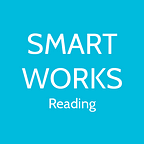Chat with the experts
Are you looking for a job? Three Vodafone experts give their top tips for effective applications, key soft skills, and how to settle in and get to know your colleagues once you start a new role. Happy reading!’
What advice would you give to someone writing a CV and/or cover letter for a job application?
Susan Hitchinson — Head of HR: Cloud, Carrier, UC&C
Writing a good CV can be one of the toughest challenges of job hunting. The reality is that most employers spend just a few moments scanning each CV — especially when the volume of applications to roles can be so high — so it’s key that you keep yours punchy and to the point.
Here are my top 3 practical suggestions to help ensure your CV stands out:
1. Tailor it
Take the time to change your CV for each role that you apply for. Research the company you’re applying to and use the job advert to work out exactly what skills you should highlight.
2. Include a personal statement
Don’t just assume an employer will see how your experience relates to their job. Instead, use a short personal statement to explain why you are the best person for the role. This should be reflected in your cover letter too.
3. Make it look good
We live in a world where image is everything, and that also goes for your CV. Take the time to make it visually appealing to the reader — use bullet points and keep sentences short — consider using company logos in place of standard text for the company name when listing out your employment history. Also make sure you proof-read your CV before sending it in — simple spelling or grammatical errors are a no-no!
What do you think are the soft skills that employers look for most and why?
Heather Jennings — Senior Manager, Operational Design
I think the most valuable soft skills an employer looks for are those which show that the candidate is eager to develop and learn.
The most important skill by far is the attitude of the individual and their willingness to learn new skills. Having a growth mind-set is extremely attractive. It means that as the business changes, which inevitably will happen, the employee will be able to learn new skills, and enjoy the process of doing this. It also means that the employee can accept constructive feedback and is comfortable taking action on it.
I also feel that good communication and collaboration skills are important, so that the employee can build good work networks, and relationships with customers or other employees. As is emotional intelligence, knowing when to be empathetic to a situation. It enables humility, and the respect of others’ emotions, and helps the employee to be aware of how their own emotions may influence a decision.
I think these skills have been particularly key during the pandemic, where so many businesses have had to change the way they operate, and create new ways of working.
What tips would you give to someone starting a new role in a new team?
Rebecca James — Engagement and Development Lead
Starting a new role can be daunting and pushes you right outside of your comfort zone. But, it is the best time to learn and develop yourself — you have the chance to learn more skills, more about the business and create a wider network of people to lean on and learn from.
Ask every single one of your questions — do not be afraid to probe, ask for clarification and ask for support. Everyone has once been new to a team and asked the same questions as you are probably thinking. So don’t be afraid to ask them! People are always willing to help and give their time to get you up to speed.
Get to know the team, make sure you set up 1-2-1’s with every member of the team and wider team. Ask your manager for a stakeholder list filled with people you will be engaging with within your role and meet them early! Everyone has time for a 20-minute chat so don’t be afraid to reach out and put a call in the diary. The sooner you meet everyone and build the relationships, the quicker you will feel comfortable and integrated within the team.
Remember, you are never expected to know everything from Day 1. Ask your manager for a 4-week view, highlighting what you are expected to learn, know and do within the first month. Use the first few weeks to observe, learn and grow in confidence and before you know it, you’ll be adding value and being a great support for the team.
Starting a new role is exciting, take all the opportunities on offer and enjoy it !!
